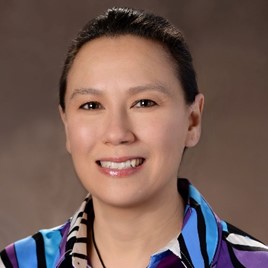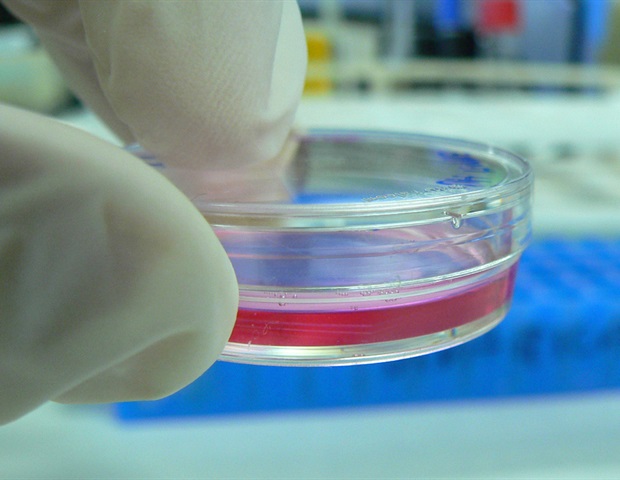Change Healthcare cyber outage | American Medical Association

On Wednesday, Feb. 21, Change Healthcare began experiencing a cyber security issue and isolated its systems to prevent further impact. Optum, UnitedHealthcare, and UnitedHealth Group (UHG) systems were not affected by the issue, according to information provided by UHG. UHG has indicated they have taken appropriate action to contain the incident so that customers and partners do not need to sever network connections and disrupt vital services. Cybersecurity experts and the HHS Administration for Strategic Preparedness and Response (ASPR) suggest taking these steps to protect your networks:
- With consideration of the written attestation from UHG that the Optum network is safe, organizations should evaluate their risk of using Optum, UnitedHealthcare and UHG systems.
- While UHG asserts that any system that is currently live and available is safe to use, organizations should evaluate their risks and make determinations if connections to Change Healthcare are appropriate at this time.
As part of your risk evaluation, health care organizations should consider the impacts of severing connectivity to Optum, which includes but is not limited to loss of prior procedure authorizations, electronic prescribing and other patient care functions. Ultimately, your organization should make its own determination on whether or not to block Optum specifically while considering all the risks and consequences of doing so. Change Healthcare is posting updates on the status of the cyberattack.
Update as of April 10
Update as of April 10
The AMA released informal survey findings (PDF) showing the ongoing, devastating impact of the Change Healthcare cyberattack, which threatens the viability of physician practices across the country, and, according to respondents, has serious implications for patient care. According to the survey, which was conducted from March 26 to April 3, restricted functionality since the cyberattack has resulted in: 36% of respondents reporting suspension in claim payment; 32% being unable to submit claims; and 22% being unable to verify eligibility for benefits. Practices of 10 physicians or less appear to be particularly hard hit.
“The disruption caused by this cyber-attack is causing tremendous financial strain,” said AMA President Jesse M. Ehrenfeld, MD, MPH. “These survey data show, in stark terms, that practices will close because of this incident, and patients will lose access to their physicians. The one-two punch of compounding Medicare cuts and inability to process claims as a result of this attack is devastating to physician practices that are already struggling to keep their doors open.”
The informal survey involved a convenience sample of more than 1,400 respondents, and demonstrates that significant problems continue, especially for small practices (practices with 10 or fewer physicians), which represent 1,097 (78%) of all respondents. The survey was conducted after UnitedHealth Group (UHG) said that claims would be flowing by the weekend of March 23. Despite UHG’s assurances, serious disruptions continue. The survey is also a reminder of the fragility of physician practices.
Read the AMA’s full statement.
Update as of March 26
Update as of March 26
On March 25, the Department of Health and Human Services (HHS) distributed these resources (PDF) to assist physicians, pharmacists and hospitals, with the aftermath of the Change Healthcare cybersecurity attacks. The AMA told HHS on a number of occasions that physicians were having difficulty securing information from health insurers about the availability of assistance with payments, flexibilities from administrative requirements, and additional contact information for troubleshooting due to the Change Healthcare cybersecurity attacks. Other interested parties raised similar issues. HHS responded by assembling these resources from health insurers. Please note that the HHS cover letter points out that the resource document contains a national contact person for each plan, though HHS urges physicians, pharmacists and hospitals to reach out first to their health insurer’s regional contact. If these contacts do not respond to inquiries, please contact [email protected].
Update as of March 19
Update as of March 19
On March 19, Representatives Mariannette Miller-Meeks (R-IA) and Robin Kelly (D-IL) along with 94 bipartisan members of the House of Representatives, sent a letter (PDF) to HHS Secretary Xavier Becerra alerting the administration of the ongoing challenges physicians and patients are continuing to experience as part of the Change Healthcare Cyberattack. In addition to highlighting the inability of physician practices to file claims and receive payment, the letter urged CMS to clarify why they issued such stringent repayment terms for advance payments on March 9. The letter also highlighted how many patients are being forced to pay out-of-pocket for many pharmaceuticals and health care services stemming from the cyberattack, as well as pressed the department for answers as to how it proposes to safeguard patients from the negative impact of their private health care being inappropriately disclosed to malicious actors.
The AMA sent a letter (PDF) to the National Association of Medicaid Directors asking that it urge its members to take immediate action to assist physician practices in their states impacted by the Change Healthcare cybersecurity breach and resulting service outage, including taking advantage of flexibilities provided by CMS related to state plan amendments (SPAs) to provide advance payments to physicians under Medicaid.
Update as of March 18
Update as of March 18
Based on direct AMA advocacy to the Administration, CMS has now reopened the 2023 MIPS Extreme and Uncontrollable Circumstances (EUC) hardship application due to the Change Healthcare cyberattack. The deadline to apply for an exemption is April 15, 2024. We are flagging this now due to the short timeline to take advantage of the flexibility. The 2023 MIPS EUC hardship exemption is not automatic and requires physicians to apply. If a physician or practice has already submitted data and would like to take advantage of this flexibility, it requires logging into the CMS portal and updating the submission.
If a physician or practice would like to still be scored on the 2023 MIPS Program, the extended deadline to submit data remains April 15, 2024.
Update as of March 14
Update as of March 14
On March 13, CMS published FAQs related to the Change Healthcare/Optum payment disruption accelerated and advance payments. These go into detail about what services qualify for accelerated and advance payments, application criteria, terms of repayment, financial concerns and other topics.
Update as of March 12
Update as of March 12
The AMA sent a letter (PDF) urging the Department of Health and Human Services, the Department of Labor, and all health care system partners to use all regulatory flexibilities to continue supporting physicians and addressing the enormous interruption in physician practice operations caused by the Change Healthcare cybersecurity incident. The letter also asked the Departments to address a number of additional concerns that physicians have been voicing.
Based on AMA advocacy (PDF) and ongoing concern with the impact the Change Healthcare cybersecurity attack is having on physician practices, CMS has extended the 2023 MIPS data submission deadline until April 15. Notably, this attack on our nation’s health care infrastructure coincides with the 2023 MIPS data submission window, which opened on January 2 and originally was scheduled to close on April 1.
The AMA welcomes this extension until April 15, but we are concerned the timeline is insufficient. Therefore, we will continue to push CMS to automatically apply the Extreme and Uncontrollable Circumstances (EUC) hardship exception to all MIPS eligible clinicians for the 2023 performance period. Alternatively, we will encourage CMS to reopen the hardship exception application for the 2023 performance period and allow eligible clinicians to claim an exception due to the Change Healthcare cyberattack.
Update as of March 9
Update as of March 9
The Centers for Medicare and Medicaid Services (CMS) have announced a new opportunity for physicians impacted by the cyber-attack and resulting disruptions with Change Healthcare to request advance Medicare payments to help with cash flow disruptions. The details of the program, terms and the steps needed to apply can be found in the links below.
Update as of March 8
Update as of March 8
The AMA sent a letter (PDF) urging CMS to provide financial relief from MIPS penalties for physicians and other clinicians impacted by the Change Healthcare cyberattack.
The AMA also sent a letter (PDF) asking the National Association of Insurance Commissioners to urge its members to take immediate action to protect physician practices from the widespread impact of the Change Healthcare cybersecurity breach and resulting outage.
View the AMA’s statement expressing the need for advance funds to physicians following UHG’s announcement outlining the restoration timeline for the Change Healthcare claims system. The AMA also called for full transparency and security assurances from UHG.
Update as of March 5
Update as of March 5
CMS is taking steps to assist physicians in the wake of the Change Healthcare cybersecurity attack.
The AMA credits the Department of Health and Human Services and CMS for responding to the urgent situation caused by the Change Healthcare cyber security incident and the unprecedent disruptions to medical practices and access to care. The newly announced flexibilities that have been put in place are a welcome first step, but the AMA is urging CMS to recognize that physicians are experiencing financial struggles that threaten the viability of many medical practices. Many physician practices operate on thin margins, and the AMA is especially concerned about the impact on small and/or rural practices, as well as those that care for the underserved. The AMA is urging federal officials to go above and beyond what has been put in place and include financial assistance such as advance payments for physicians.
Update as of March 4
Update as of March 4
As the cyber-takedown of Change Healthcare has forced medical practices to go without revenue for a twelfth day, the AMA urged U.S. Department of Health and Human Services (HHS) (PDF) Secretary Xavier Becerra to use all its available authorities to ensure that physician practices can continue to function, and patients can continue to receive the care that they need.
A press release was issued announcing the AMA letter sent to HHS Secretary Becerra.
Update as of March 1
Update as of March 1
United Health Group (UHG) has created a website to provide updates on the cyber-attack that has impacted Change Healthcare and several of UHG’s systems. The website and the information it contains is provided by UHG and not by the AMA. The AMA has not reviewed the information for accuracy or content.
Information on the Change Healthcare Cyber Response.
Updates as of Feb. 29
Updates as of Feb. 29
Actionable next steps for impacted medical practices include (but are not limited to) the following:
- Communicate with your payors regarding payment workarounds to bypass disrupted Change Healthcare applications.
- Monitor the Change Healthcare Incident update website for relevant updates.
- Develop a set of security- and Incident-related questions or criteria for Change Healthcare to reestablish connectivity with Change Healthcare systems (e.g., what assurances can be provided that the risk has been contained and remediated? What security improvements have been implemented to help ensure similar incidents do not occur again? What personal information about our patients and/or clinicians has been compromised? What actions are Change Healthcare taking to protect those patients and/or clinicians?).
- Review HIPAA compliance programs, including (among others) written policies and procedures and security risk analyses.
Cybersecurity updates
In response to active exploitation of a cybersecurity vulnerability, the Federal Bureau of Investigation (FBI), the Cybersecurity and Infrastructure Security Agency (CISA), and the Department of Health and Human Services (HHS) have released a joint announcement on what is believed to be the cyber-attack that impacted Change Healthcare. The advisory details the attack and provides information for medical practices and information technology staff to help strengthen your organization’s cybersecurity.
Additional resources
Additional resources
AMA has curated resources and has tips for physicians and health care staff to protect patient health records and other data from cyberattacks.
link







